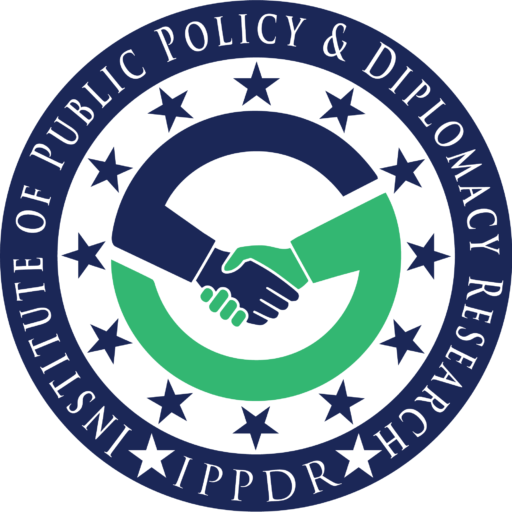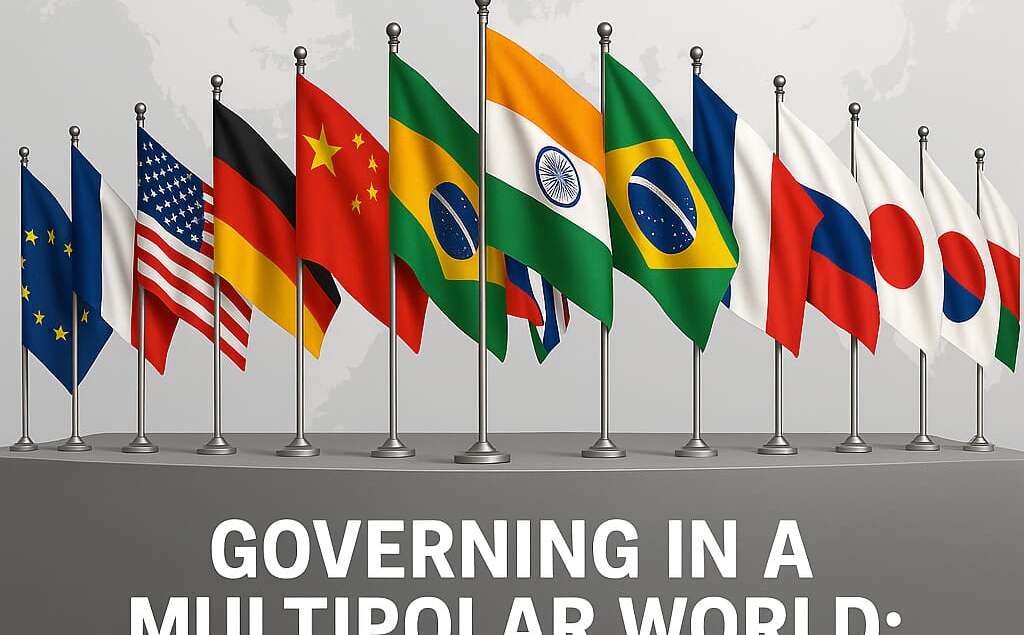Ethical Leadership in a Multipolar World
Leadership in the world has transitioned from being dominated by a single superpower. The 21st century has introduced a multipolar landscape where global influence is distributed among various nations, and leadership is continually negotiated across different regions, alliances, and crises.
In this new context, the issue transcends mere politics and delves into moral territory:
Can ethical leadership persist when power is decentralized, peace is influenced by political agendas, and pragmatism prevails?
This question is pertinent not only for heads of state but also for all officials, diplomats, and peacebuilders engaged in shaping the future of governance.
The Multipolar Reality: Emergence of Regional and Competing Powers
The United States is no longer the sole dominant geopolitical entity. China has emerged as a significant economic and diplomatic power, extending its influence throughout Africa, Latin America, and the Pacific via its Belt and Road Initiative.
Concurrently, Russia is striving for renewed geopolitical significance, as demonstrated by its invasion of Ukraine and its assertive energy diplomacy in Europe and Central Asia.
Additionally, regional powers such as Brazil in South America, Turkey in the Middle East, Nigeria and Kenya in Africa, and Mexico in North America are asserting their demands for inclusion in global decision-making processes.
The BRICS coalition is evolving from an economic partnership into a political alliance, while member states of the African Union are increasingly asserting their diplomatic and defense independence.
This is the essence of multipolarity: an increase in diverse voices, multiple centers of power, and enhanced opportunities for equilibrium.
However, these transformations also come with ethical dilemmas, and at times, a troubling silence in the face of human suffering.
When Ethics Clash with National Interests
In a multipolar world, ethical governance often finds itself caught between strategic restraint and moral duty. This is not merely a theoretical dilemma; it manifests daily in various global crises.
Leadership case of Haiti
Haiti is a nation in disarray, lacking a functional elected government. With gangs controlling certain areas of Port-au-Prince, the responses from regional and international actors have been disjointed and delayed. Major powers have been reluctant to intervene despite appeals for humanitarian assistance, primarily due to political risks and ambiguous outcomes.
As a result, the Haitian population is left without democratic leadership or effective protection, highlighting how global governance can become stagnant when moral clarity is obscured by strategic ambiguity.
Leadership case of Sudan
In Sudan, a brutal civil war between competing military factions has resulted in the displacement of over 8 million individuals. Yet, the absence of cohesive international intervention is striking.
While regional players attempt to mediate, global powers remain largely silent, not due to a lack of information but because of conflicting interests related to arms sales, counterterrorism, and access to minerals. The humanitarian crisis is staggering, yet strategic interests dominate the international response.
Leadership case of Ukraine
The situation in Ukraine presents a different scenario: a full-scale invasion by Russia has prompted unprecedented unity and support from Western nations. However, ethical leadership in this context is often viewed through a geostrategic lens. Billions in military aid are regularly dispatched, while other regions experiencing equally severe crises receive only expressions of concern. This selective approach raises broader questions: when does a crisis become ethically urgent, and who determines the criteria?
Leadership case of Latin America
In Latin America, the ongoing tension between populist governance and institutional integrity remains pronounced. In countries such as Nicaragua and Venezuela, authoritarianism disguises itself with anti-imperialist rhetoric while stifling dissent.
Meanwhile, progressive governments strive to deliver on promises of justice while grappling with economic dependencies on global markets. Even nations like Colombia and Chile, which have made strides toward democracy, face pressure to reconcile peace with rising inequality.
Although ethical governance is feasible in this context, it is consistently under threat.
The Nature of Ethical Leadership in 2025
In such a complex environment, ethical leadership cannot afford to be naïve; it must be strategic, disciplined, and inherently human. It begins with transparent decision-making, the courage to confront injustice, and the readiness to act in favor of long-term peace rather than short-term popularity.
In Latin America, noteworthy endeavors have emerged, such as Colombia’s transitional justice process, which seeks to reintegrate former rebels into society through legal and political means. Similarly, Kenya and Ghana are pursuing regional diplomacy in Africa, prioritizing democratic ideals and nonviolent solutions, even amidst economic pressures.
These leaders may not be flawless, but they represent a governance model that values dialogue over dominance and purpose over pride.
Conscience-Driven Diplomacy
This is where the new generation of peacebuilders, diplomats, and public servants must step forward.
We need to shift from transactional approaches to transformative ones, moving from governance that asks, “What’s in it for us?” to diplomacy that inquires, “What is required for peace?”
Programs such as the Certified International Peace Practitioner™ (CIPP), created by the Institute of Public Policy and Diplomacy Research (IPPDR), are pioneering efforts by training practitioners in negotiation and international relations, as well as ethical decision-making, conflict sensitivity, and respect for human dignity.
Policy devoid of principle equates to power absent of peace cost that the future generation cannot afford.
Ethics as the New Paradigm
Navigating governance in a multipolar world will always be challenging. The tables are larger, the stakes are elevated, and the ethical boundaries are frequently unclear. However, this underscores the importance of leadership.
Leaders who will be remembered are not those who cling to power, but those who leverage it to uplift humanity, even when such actions are inconvenient, unpopular, or delayed. Thus, ethical leadership undeniably has relevance in our world. Not because it is simple, but because without it, we forfeit the very essence of our leadership.
For more information
For courses/training opportunities in ethical leadership, visit
Website: www.ippdr.org
Email: info@ippdr.org

